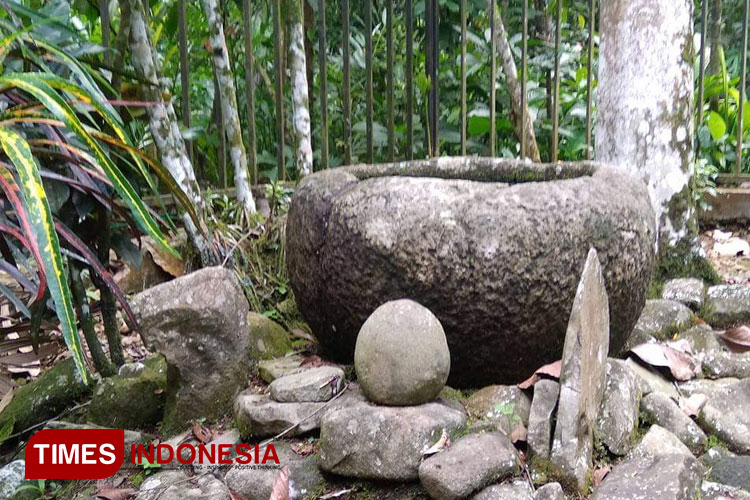TIMES TEMANGGUNG, JAKARTA – Watu Lumpang, an ancient site believed to have ritual significance, provides a glimpse into the lives and traditions of prehistoric communities. This site, commonly found in highland areas, is thought to have played a key role in religious ceremonies or social activities of megalithic societies.
One such site is located in Banyumas Regency, Central Java, in the Cilongok District, near the slopes of Mount Slamet. The site is scattered across several villages, including Sokawera, Gununglurah, Sambirata, Karangtengah, Penambangan, and Karanglo.
The Watu Lumpang stones were originally used as tools for pounding or grinding, but they are also believed to carry symbolic meanings. Some interpretations link them to ancestor worship, while others see them as part of an ancient agricultural system tied to fertility rituals.
The Cilongok Watu Lumpang site, as it is known locally, offers valuable insight into the lives of early communities that had already developed complex social structures.
According to Parsito, a public relations figure for Banyumas Regency, one of the well-preserved sites is the Cilongok Site, located in Grumbul Ragung, Sambirata Village, Cilongok District. "Despite being formally known as the Cilongok Site, local residents commonly refer to it as the Sambirata Site or the Watu Lumpang Site, due to the stone's resemblance to a traditional mortar," he said.
Parwati, the caretaker of the Cilongok Watu Lumpang site, explained that she has been responsible for its maintenance since 2011, a role assigned by the Central Java Office for the Preservation of Cultural Heritage. Parwati inherited the task from her father, Sudiro, who had been involved in maintaining the site since 1981, when the government began archaeological investigations in the area.
Parwati shared an interesting local legend surrounding the Watu Lumpang near the slopes of Mount Slamet. It is said that the stone was once borrowed by supernatural beings for a ceremonial event in Ragung.
However, as they attempted to return the stone, dawn approached. Fearing sunlight, the beings left the stone where it now remains. According to local belief, the site is guarded by a spiritual presence named Rantansari.
The site’s location in Ragung is believed to have historical significance, with the name derived from "Alur Agung" (meaning "Great Path"). It is said to have been a route traveled by the revered Sufi saint, Sheikh Abdul Qodir Jaelani. A relic marking his journey can still be found about 30 meters above the Watu Lumpang site.
Though officially recognized as a cultural heritage site, Watu Lumpang remains on private land, and further research is yet to be conducted. Despite this, efforts to preserve the site are visible, with signage from the Banyumas Regency's Department of Youth, Sports, Culture, and Tourism reminding visitors of its importance.
Interestingly, Watu Lumpang continues to attract visitors, with offerings such as flowers and incense often found near the stone, especially on Friday and Tuesday nights, indicating the site's ongoing spiritual significance. Parwati regularly finds these offerings, suggesting that visitors still come to pay their respects to the ancient site. (*)
| Pewarta | : Khodijah Siti |
| Editor | : Khodijah Siti |

























